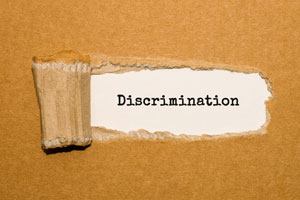Employers are responsible for protecting staff from a variety of risks that impact their well-being. In addition to creating policies and platforms that safeguard employees from physical threats, organizations need to proactively institute programs that target often unseen hazards like workplace discrimination.
Discrimination is loosely defined as treating a person or group less favorably than others due to circumstances or personal characteristics such as:
- race/nation of origin
- gender
- age
- sexual orientation
- impairment/disability
- religious or political beliefs and practices
- pregnancy
- marital status
- parental or caregiver status
Discrimination is an insidious practice that can be carried out in a direct or indirect manner. In 2019, there were more than 70,000 complaints of workplace discrimination reported to the U.S. Equal Employment Opportunity Commission (EEOC). The majority of cases were based on retaliatory causes, followed by discrimination based on disability, race, and gender. A comprehensive analysis spanning a ten-year period of EEOC filings reflects that the government agency received nearly 1 million complaints from 2009 to 2018. This study reveals similar causes of discrimination, including race, gender, age, and national origin. Discrimination is not only ethically wrong; it has a significant impact on institutions that can affect morale, productivity, and ultimately the financial status and reputation of your firm. Here are eight proven ways to prevent workplace discrimination:
Education: Offer comprehensive instruction on workplace discrimination to all employees
Training: Prepare managers and supervisors to effectively handle complaints
Encouragement: Promote respect and acceptance of differences among staff
Response: Promptly manage any direct or indirect evidence of discrimination
Policy: Develop and implement a comprehensive non-discrimination platform that is actively communicated and enforced across the firm. Policies should include guidelines on harassment, sexual harassment, retaliation, performance appraisal, and hiring, to name a few
Fairness: Ensure that all employees are treated fairly and equitably
Hiring: Base hires on the specific requirements of the position – eliminate any and all other factors that could lead to prejudicial judgements
Consequences: Establish consequences for discriminatory behavior, including performance improvement plans, warnings, and terminations
The best way for firms and other institutions to eliminate potential litigation or negative business impact due to discriminatory practices is to execute comprehensive non-discrimination policies that ensure staff-wide fairness and equitable treatment.
The professionals at Verus HR Solutions team are poised to support law firms in the development and implementation of programs and policies designed to strengthen their human resource functions. Our team offers the infrastructure necessary to develop best practices in the areas of hiring and strategic onboarding, performance assessment, talent development, company culture, employee relations and engagement, regulatory compliance, compensation, and organizational change.
Click on this link for information on Verus’ HR Solutions, Administration, and Implementation Services. To contact us, fill out this form or email us at info@verusllc.com and we will reply immediately.







